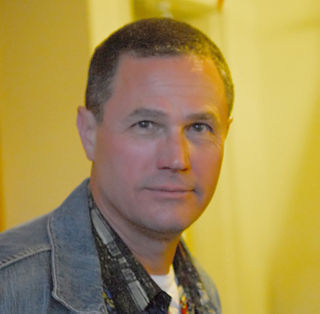A Quote by Dan Burt
I was always worried about the dishonesty and meretriciousness that often accompanies ego. So I tried to make the memoir as factual and accurate and as unemotional as I could, and let readers make their own judgments on what happened. And, in fact, that's how I write poetry. I'm trying to present the reader with the experience itself, not with my commentary on it. So I adopted a style that I'd hoped would let me accomplish that.
Related Quotes
The desire to be liked is acceptable in real life but very problematic in fiction. Pleasantness is the enemy of good fiction. I try to write on the premise that no one is going to read my work. Because there's this terrible impulse to grovel before the reader, to make them like you, to write with the reader in mind in that way. It prevents you doing work that is ugly or upsetting or difficult. The temptation is to not be true to what you want to write and to be considerate or amusing instead. I'm always trying to fight against the impulse to make my readers like me.
When I see an entire community disenfranchised, it disturbs me. Not that I'm a message guy, per se. I write about people. I like to write about human beings, not crap political rhetoric. I've tried to avoid that all my life. When I wrote about soldiers in Vietnam, I wasn't trying to make a political statement. I was trying to write about how screwed things were for soldiers, and how they still are.
A serious life, by definition, is a life one reflects on, a life one tries to make sense of and bear witness to. Truth in a memoir is achieved not through a recital of actual events; it is achieved when the reader comes to believe that the writer is working hard to engage with the experience at hand. What happened to the writer is not what matters; what matters is the large sense that the writer is able to make of what happened.
People often ask me why my style is so simple. It is, in fact, deceptively simple, for no two sentences are alike. It is clarity that I am striving to attain, not simplicity. Of course, some people want literature to be difficult and there are writers who like to make their readers toil and sweat. They hope to be taken more seriously that way. I have always tried to achieve a prose that is easy and conversational. And those who think this is simple should try it for themselves.
The problem of the novelist who wishes to write about a man's encounter with God is how he shall make the experience--which is both natural and supernatural--understandable, and credible, to his reader. In any age this would be a problem, but in our own, it is a well- nigh insurmountable one. Today's audience is one in which religious feeling has become, if not atrophied, at least vaporous and sentimental.
The main thing I try to do is write as clearly as I can. Because I have the greatest respect for the reader, and if he's going to the trouble of reading what I've written -- I'm a slow reader myself and I guess most people are -- why, the least I can do is make it as easy as possible for him to find out what I'm trying to say, trying to get at. I rewrite a good deal to make it clear.
When people decide to talk publicly about poetry as an art form and how it's received, they often get very abject about it: "Nobody reads poetry," and then a thousand people write back, "No, we read poetry." There's an abundance of this negative preaching to the choir, and it's very similar to the experience I'm having.
What the world wants, what the world is waiting for, is not Modern Poetry or Classical Poetry or Neo-Classical Poetry - but Good Poetry. And the dreadful disreputable doubt, which stirs in my own skeptical mind, is doubt about whether it would really matter much what style a poet chose to write in, in any period, as long as he wrote Good poetry.
































